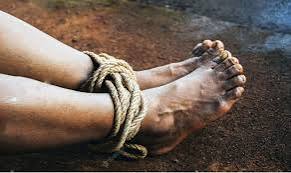News
Experts: Flooding cost Nigerian businesses and the economy over N1 trillion in two weeks.

Ibekimi Oriamaja Reports
Flooding has crippled many businesses in some parts of Nigeria. There is a direct link between flooding and business survival.
The flooding crisis has cost the Nigerian economy and businesses more than N1 trillion in just two weeks.
The flood has wreaked havoc on Kogi, Benue, Anambra, Niger, Nasarawa, and other Nigerian states.
According to the National Emergency Management Agency, many houses have been submerged, a large portion of dry land has been cut off, over 80 lives have been lost, and 600,000 people have been displaced (NEMA).
The flood situation on the Lokoja-Abuja federal highway has caused excruciating pains for travelers. Trucks transporting food from the South to the North and from the North to the South have been stranded.
NEMA described the nightmares that some Nigerians are experiencing as a result of this year’s deadly flooding, a crisis that now requires global intervention.
Yayaha Bello, the governor of Kogi State, described the flood crisis as a “near-hell disaster.”
He stated that Kogi State’s worst-affected district, Ibaji, is “100% underwater,” and urged immediate action.
Mr Idakolo Gbolade, MD/CEO SD & D Capital Management Limited, said the Nigerian economy and businesses have lost over N1 trillion Naira in two weeks due to this year’s flooding.
“The recent flooding affects most agrarian areas in Nigeria, thereby affecting the availability and cost of food products,” he says.
“The flooding has had a significant impact on the Nigerian economy and businesses.” Billions of vehicles on the Lokoja-Abuja highway have been stranded for more than 15 days. Fuel tankers using Lokoja road to supply Premium Motor Spirit (PMS) to North Central and Abuja, for example, have been stranded in Lokoja due to the flooding crisis. This will undoubtedly have an impact on businesses that rely on fuel for energy.
“Also, as a result of the flooding, Irish potatoes, tomatoes, pepper, onions, carrots, yams, and other food items have seen a sharp increase.” Because the cost of transporting goods via alternative routes is higher, the price has risen.
“In two weeks, the Nigerian economy and businesses have lost over N1 trillion naira due to this year’s flooding crisis,” he said.
Prof. Mansur Matazu, Director-General of the Nigerian Meteorological Agency, revealed on Tuesday that the North Central and Southern zones should expect more flooding.
Meanwhile, there have been calls for both immediate and long-term solutions to the flooding crisis.
-

 Politics5 days ago
Politics5 days agoJUST-IN: George Turnah Welcomes Isaac Amakuro’s Disassociation from G-House Political Family
-

 Business7 hours ago
Business7 hours agoAn Open Appeal To The Gov. Of Bayelsa State, Sen. Diri Douye Regarding The Removal Of My Prominent Billboard On Azikoro Road, Near Ekeki Park.
-

 National6 days ago
National6 days agoNigerian Cybercrime Police Centre Summons UK-Based Blogger Over Sowore Birthday Post
-

 News7 days ago
News7 days agoDr. Ken Robinson: My Message On The Passing Of Chief Edwin Kiagbodo Clark
-

 Crime5 days ago
Crime5 days agoWhy I Butchered Student I Met on Facebook – Kwara Cleric
-

 News1 day ago
News1 day agoPolice have arrested three suspects who offered a pregnant woman N30 million to terminate her six-month-old fetus for a ritual in Niger State
-

 News6 days ago
News6 days agoThe suspect involved alleged N62 million extortion case has revealed details regarding the police’s role
-

 Crime6 days ago
Crime6 days agoTwo residents of FCT killed by kidnappers due to delays in paying their ransom




